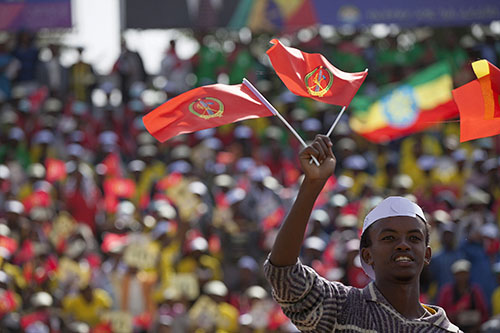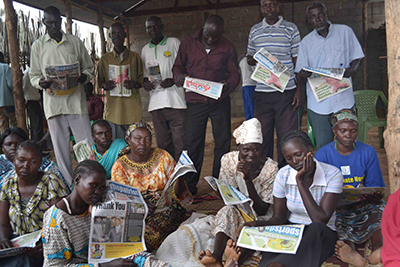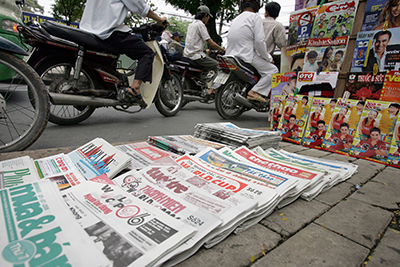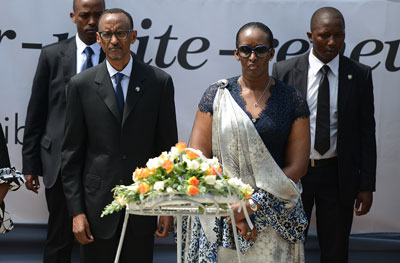
Chinese cartoonist Rebel Pepper struggles to survive in self-imposed exile
When calls for Wang Liming to be arrested were made on a forum hosted by China’s state-controlled press last year, the satirical cartoonist who lampooned the Communist Party leadership decided it would be safer to stay in Japan, where he had been traveling. But while he may have avoided possible arrest, the cartoonist, known as…

With limited independent press, Ethiopians left voting in the dark
On Sunday Ethiopians go to the polls in the country’s fifth general election since the ruling Ethiopian People’s Revolutionary Democratic Front came to power more than 20 years ago. Citizens are expected to choose the right party to lead them for the next five years. To do so, they need to have a clear understanding…
CPJ calls on Sri Lanka to improve press freedom
Dear President Sirisena, As your government’s post-election 100-day agenda nears completion the Committee to Protect Journalists, an international press freedom organization, recognizes your early endeavors in keeping promises to ensure media freedom. CPJ would like to request a meeting with you and your government to discuss the problems that persist for the country’s media.
Four Bahraini journalists stripped of citizenship
Washington D.C. February 4, 2015–Bahraini authorities revoked the nationality of at least four journalists among a total of 72 citizens, after accusing them under article 10 of the country’s citizenship act of supporting terrorism, the state-run Bahrain News Agency reported.

Mission Journal: Ethiopian journalists must choose between being locked up or locked out
A sharp increase in the number of Ethiopian journalists fleeing into exile has been recorded by the Committee to Protect Journalists in the past 12 months. More than 30–twice the number of exiles CPJ documented in 2012 and 2013 combined–were forced to leave after the government began a campaign of arrests. In October, Nicole Schilit…

Mission Journal: As South Sudan conflict continues press still suffers
On December 15 last year, fighting that broke out between supporters of South Sudan’s President Salva Kiir and Riek Machar–who had been vice president until Kiir fired the entire Cabinet–escalated into a civil war that has increased pressure on an already fragile independent press.

Undercover in Vietnam: Exile is high price reporters pay for press freedom
In the third of CPJ’s four-part “Undercover in Vietnam” series on press freedom in Vietnam, CPJ Southeast Asia Representative Shawn Crispin interviews a reporter living in exile after challenging the censorship imposed in newsrooms. The final part, to be published Tuesday, reveals how prominent bloggers remain behind bars despite the margin for critical debate opening.…

New charges against Ethiopian publications further diminish critical voices
Five independent magazines and a weekly newspaper have been charged by Ethiopia’s Justice Ministry, a move that may add to the long lists of shuttered publications and Ethiopian journalists in exile. In a press release issued August 4, the ministry accused the journals of publishing false information, inciting violence, and undermining public confidence in the…

20 years after genocide, Rwanda safe, clean, undemocratic
“Do not forget the genocide,” said the voice of a state broadcast announcer in Kigali crackling through a cheap car radio, referring to the organized slaughter 20 years ago of more than 10 percent of the population. “We are all one now,” he said, speaking in Rwanda’s common language of Kinyarwanda, and meaning that Rwandans…